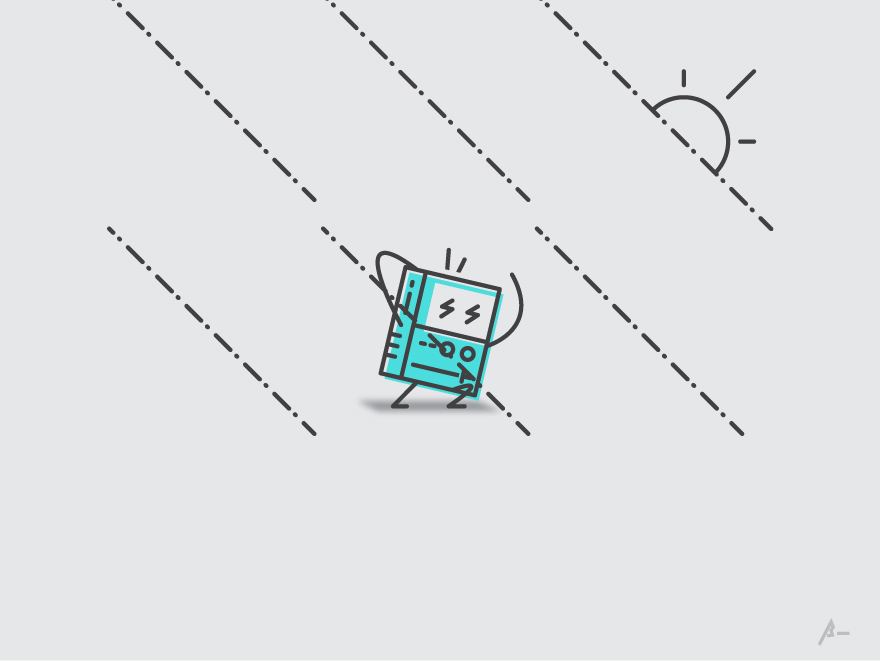The sun comes and goes, but regular rain is here to stay — for a few months, at least.
Although the Philippines only has two seasons every year, you can still put the heat and rain into a number of categories. September to January are usually the colder months (not winter cold, but cool for a tropical country). The skies normally drop shower-like rainfall and the heat is fine.
By the end of February up to May, that heat becomes unbearable. (Imagine the grass and trees dying of dehydration.) Aside from the high temperatures, the accompanying heat strokes and dengue fever prevalence during the season, humidity is another cause for discomfort whether it’s day or night. But we survive it.
The next three months of June, July and August, are considered to be the rainy season. Rainfall during these months can turn most of the country’s roads to rivers. Storms are almost every other week. We can’t let the rain stop us, though. Let’s focus on how to get through this season, despite its apocalyptic nature.
It always pays to be prepared during the rainy days. Getting home from work is a major problem, but we can find some comfort in the little things. Below are some tips to remember:
- Have an extra set of clothing and footwear: Getting to and leaving our workplace would be such a breeze if we kept an extra set of everything from head to foot. If you’re leaving for work from your home, it’s better be ready before leaving the house. Wearing your slippers or rain boots will keep your uniform or jeans H2O-free when you arrive at the office. When you’re leaving the office, having a pair of slippers in the office might be your ticket home, especially if you only have one pair of shoes.
- Ensure you have a means of communication: Since the cellphone is the next closest thing to a human being nowadays, it would be sensible to make sure ALL cellphones (assuming most people have more than one) must be fully charged before one leaves the office or the house. Carrying an extra battery or a power bank might be necessary too.
- Remember emergency hotline numbers: Of course, we cannot be too safe. Despite having our new president, there will still be bad elements around us waiting for our most vulnerable moment. It’s a good thing to be prepared with the necessary numbers to call in case of emergency, like our parents, siblings, grandparents, hospitals in Cebu, the police and even the fire departments.
- National Emergency Hotline: 911
- ERUF Banilad: +63.32.233-9300
- Chong Hua Hospital: +63.32.255-8000
- Cebu Doctor’s Hospital: +63.32.255-5555
- Perpetual Succour Hospital: +63.32.233-8620
- Cebu Velez General Hospital: +63.32.253-1871
- Cebu City Medical Center: +63.32.255-7141
- Cebu City Fire Department – Dial 160 from any landline within Cebu City
- Cebu City Police Department – Dial 166 from any landline within Cebu City
- Mabolo Police Station: +63.32.233-6793
- Theft and Robbery Section: +63.32.233-0202
- Have a first-aid kit handy: A first-aid kit is very useful for the unexpected events in our lives.
- Bring an umbrella or raincoat: If you’re a full fledged Filipino, born or raised in this beautiful country, you would know that there are lots of ways to be fashionable even during the rainy season. Umbrellas nowadays are getting better and some even smaller. With the sometimes unpredictable rains, it is safe to say that one should bring an umbrella everyday to avoid getting sick. Raincoats are cute too, not only for children but also for adults. If you don’t like carrying an umbrella, raincoats are your next best option.
- Stay on high ground: Staying in the office is likely the better option rather than staying on the road, waiting to get a ride. This is highly recommended when there are heavy downpours or steady rains for hours. The Philippines is not known for its water sewage system, so more likely than not, water will be rising on the road in no time and floods will start to build up. If you’re already on the road, it’s a good precaution to check your surroundings for higher elevation. Getting a ride will most likely be your next problem, but you might as well get to safety first.
- Avoid the rush hour: Planning ahead definitely makes things easier. The ability to anticipate possible events make a lot of difference. Thanks to technology, our lives are easier than ever. Google maps and the Waze application are good sources of information when it comes to knowing which route or path is the fastest way to get home. In Google maps (good for surveying traffic), it even shows which specific areas have blocked roads. Google in general can already give the weather report for today — just type “weather today in (your location)” and BOOM! Information right away and it updates every hour.
Knowing and practicing these tips will help us stay safe (and dry) always!





